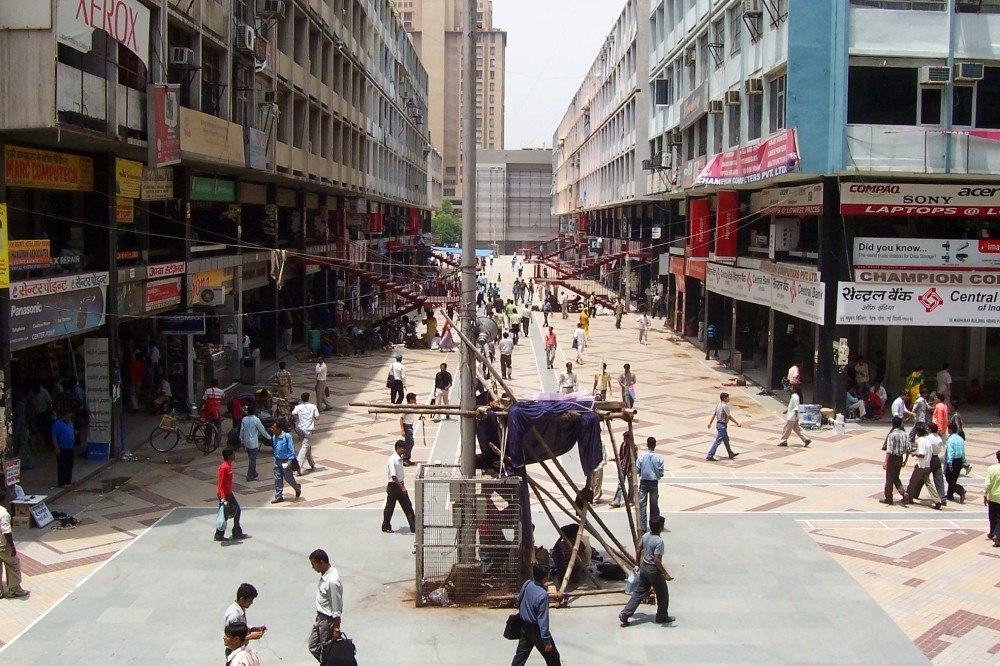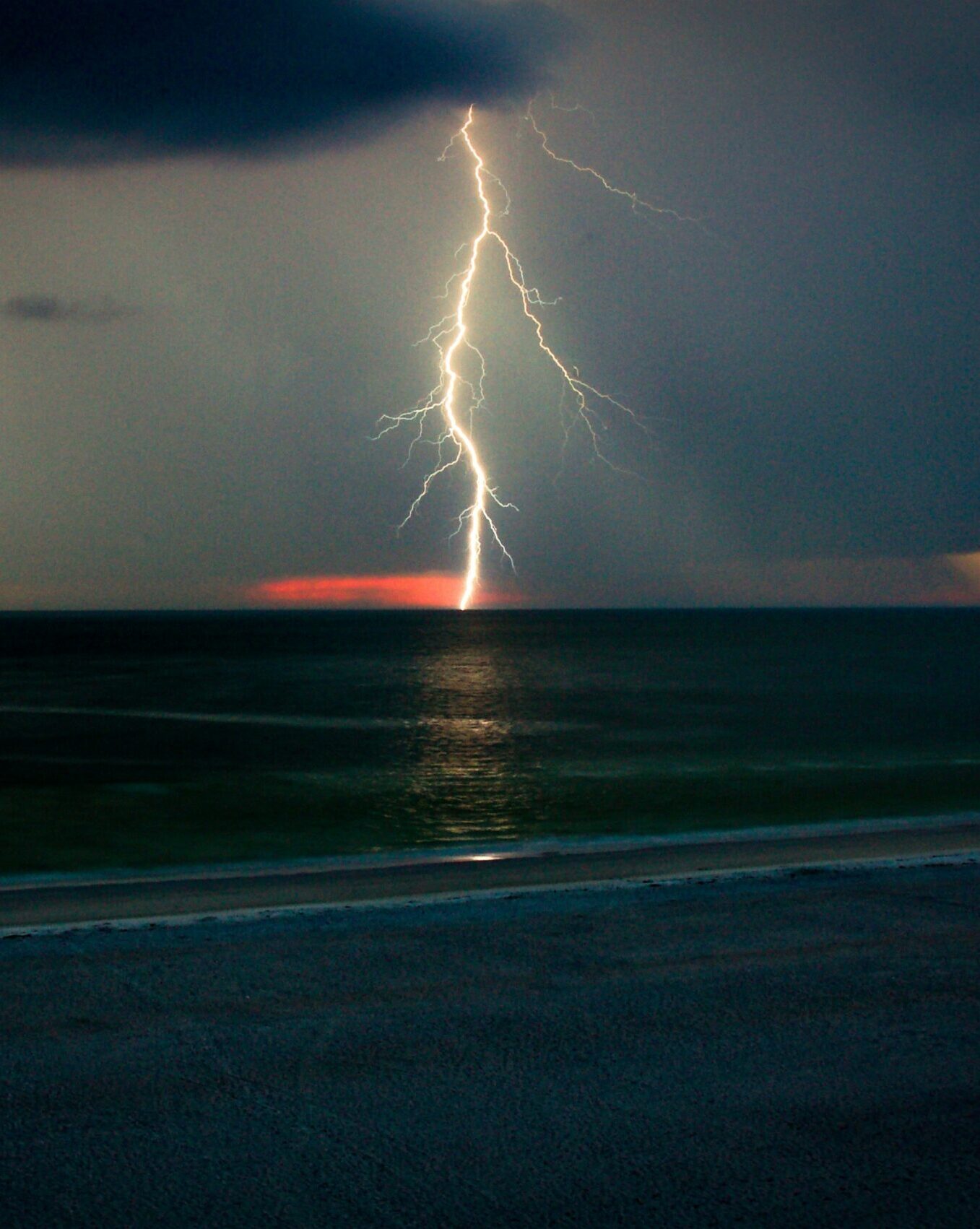
The US of A finally stamped its visa in my black pocketbook. Jazz fusion played in my ear, songs from an album fittingly titled This Meets That. I floated out of the document collection center in Nehru Place, New Delhi.
My flight was in three days, and I had just enough time for a few final chores. One of them was to get my old hard drive fixed, a sweet metaphor for carrying past through present into the future.
I also had to pack, for which I needed to buy a suitcase, and for which in turn I thought I would make a long-planned trip to the Army Canteen. All in good time, I told myself lazily, craning my neck and twirling around 360 degrees, training my eyes on the high-rise office buildings on one side of the road.
“What are you on?” a voice asked from the other side.
A man surrounded by a laboratory of shoeshine apparatus flashed teeth like piano keys, grinning as I returned to Delhi’s scents of chewing tobacco, chaat masala and wax polish. I recalled I had a hard drive to fix and a building to find. Perhaps, I thought, the man could point me in the right direction. I looked at him properly for the first time: kind but bloodshot eyes, tattered polyester shirt, and distinguished grey hair; a man who owned no shoes, yet knew everything about shoes, who shone shoes for people who wouldn’t know two kinds of knots to tie their laces.
Look at you, my inner devil piped up.Not two minutes since the visa arrived, and you’re all Humans of New York already.
“When did you last polish your shoes?” the cobbler condescended. He had seen me pity him and was reciprocating in kind. I was wearing my best stone grey Arrow shirt with black classic fit trousers, but he’d noticed my shabby shoes sticking out. He gazed at them with great amusement, which made me feel small despite the fact that I towered over him.
“Looks like it has been years,” he spat, literally. “Wait here for two minutes. I’ll do them for you.”
When the cobbler placed a pair of rubber slippers at my feet to stand in, asking in return for my shoes, I noticed that the music in my headphones had stopped. I tapped my phone, desperate to avoid a conversation in which I would have to repeat the ten Hindi words I knew. Now playing, the phone informed me, “The House of the Rising Sun.” Cymbals crashed as the cobbler opened a tin can. With artistic flourish, he applied a white, greasy substance as foundation, added black polish to the palette, and worked his brush. Tapping my feet, I thrust my hands deep into my trouser pockets. This is how I’ll always remember “The House of the Rising Sun,” as interpreted by John Scofield: cobbler and guitarist engaged in a battle of hands as I watched from the sidelines. I was ashamed that I couldn’t be more present and talk to the cobbler, but he soon found company. Snakes of sachets wriggling out of a crate on his backseat, a tobacco-hawker parked his bicycle and squatted beside the cobbler, as one lead-guitar forked into two in my headphones. Their jaws moved animatedly as they chewed and chatted at the same time. A joke was cracked, the cobbler laughed. He laughed even harder catching sight of my grin, not realizing no part of their conversation reached my ears.
The guitars went wild, their keys changing in sync as I smash cut from the cobbler’s busy hands, to a hustler for a computer repair shop dragging a bald man by the strap of his laptop bag, to a gangly teenager with rainbow-colored aux cables dangling from his neck. Stray dogs quarreled over a garbage pile in the middle of the road. At the burst of a spaghetti-western guitar solo, my insides bent like the strings under Mr. Scofield’s fingers; I suddenly pictured myself at the bottom of an escalator, almost at the boarding gate.
I couldn’t believe I was leaving all of this behind.
The cobbler caught my attention with my shoes, now shiny, reflecting sunlight up to my brimming eyes. I put them on and crouched to loop the laces.
“How much?” I asked, my face level with the cobbler’s.
“Twenty rupees,” he said.
I paid him his due, thanked him once for each shoe, and one more time for his directions to the data recovery store. By the time I reached the shop, the song had changed to Scofield’s cover of “I Can’t Get No Satisfaction.” The man there pronounced my hard drive officially beyond repair. Gone was my prized collection of old Blues records, a few festivals’ worth of movies, and some laugh-worthy old writing. I still left the man with instructions to upload data to the cloud, in the unlikely event that he managed to retrieve any. He asked me for a phone number and said he would tell me in four days. It would be one day too many, so I left the number of a friend. He gave me a card. We shook hands.
I emerged from the dingy basement shop into light, leaving behind the remains of my hard drive like a sibling I couldn’t save. My phone played a song that I neither recognized nor followed. Cobbler, hustler, and tobacco seller were still around, minding their business. Only I am leaving, I thought as I put “The House of the Rising Sun” on again.
Karthik Purushothaman hails from Chennai, India, and is currently an MFA candidate at William Paterson University of New Jersey.




